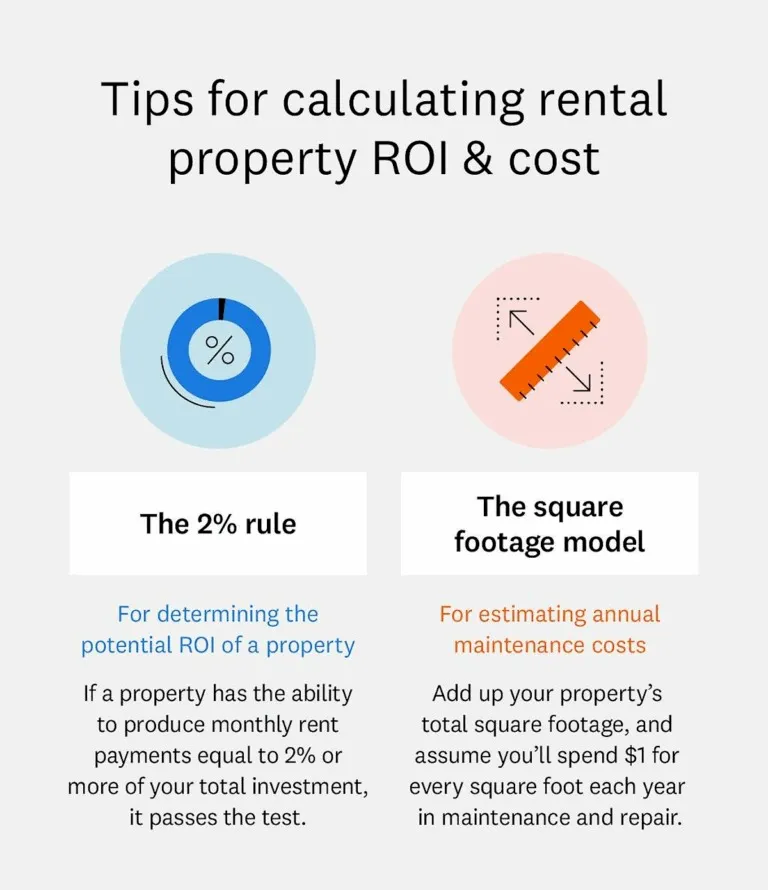Is Rental Property A Good Investment In 2025?
Owning rental property has long been seen as a pathway to passive income and long-term wealth. But is rental property a good investment in 2025? The answer depends on multiple factors, including market conditions, personal goals, and risk tolerance. This comprehensive guide will help you understand the potential benefits, challenges, and essential considerations before entering the rental property market this year.

The Benefits of Investing in Rental Property in 2025
1. Steady Passive Income Rental properties can provide a consistent cash flow. Once you secure tenants, you can generate income that covers your mortgage, taxes, and maintenance costs, potentially leaving you with profit each month.
2. Long-Term Appreciation Historically, real estate values increase over time. If the trend continues, your property could appreciate significantly, allowing you to build equity and realize capital gains when you decide to sell.
3. Tax Advantages Rental property ownership offers several tax deductions, including mortgage interest, property taxes, insurance, maintenance, and depreciation. These deductions can lower your taxable income and enhance your overall returns.
4. Hedge Against Inflation As inflation rises, so do rental prices. This allows landlords to increase rents over time, protecting their purchasing power and maintaining profitability.
5. Portfolio Diversification Adding real estate to your investment portfolio can reduce overall risk by balancing exposure to other asset classes like stocks and bonds.
Potential Challenges of Rental Property Investment
1. High Upfront Costs Purchasing rental property requires a substantial initial investment, including down payment, closing costs, and potential renovations. First-time investors must prepare financially for these significant expenses.
2. Property Management Responsibilities Managing a rental property involves time and effort. From tenant screening and lease management to addressing maintenance requests and legal compliance, being a landlord demands ongoing involvement.
3. Vacancy Risks Empty units mean lost income. Extended vacancies can strain your finances, especially if rental income is essential for covering expenses.
4. Unexpected Maintenance Costs Repairs and maintenance are inevitable. Budgeting for unplanned expenses is crucial to avoid financial surprises that can erode profits.
5. Market Volatility Real estate markets fluctuate. Economic downturns can affect property values and rental demand, impacting your investment’s performance.
Understanding the 2025 Rental Market Trends
Rising Interest Rates Higher mortgage rates in 2025 have increased financing costs, making affordability a critical factor for both investors and tenants. Investors should carefully evaluate financing terms and consider the long-term impact of higher rates on cash flow.
Strong Demand for Rentals Despite financial headwinds, rental demand remains robust due to factors such as limited housing supply, growing urban populations, and increasing homeownership barriers for many individuals.
Regional Variations Location is more important than ever. Areas with strong local economies, job growth, and population increases offer the most attractive opportunities. Investors should focus on neighborhoods with low vacancy rates and desirable amenities.
Key Factors for Choosing the Right Location
- Neighborhood Quality: Access to good schools, transportation, and community amenities attract reliable tenants.
- Economic Stability: Areas with growing employment opportunities often experience higher rental demand.
- Historical Appreciation: Regions with consistent property value growth provide more stable long-term investments.
- Proximity to Attractions: Locations near shopping, dining, parks, and entertainment typically see stronger tenant interest.
Financing Your Rental Property in 2025
Mortgage Options:
- Conventional Loans: Require 20%-25% down payment with competitive terms for qualified borrowers.
- FHA Loans: Lower down payments but limited in use for investment properties.
- VA Loans: Excellent terms for eligible veterans, though typically reserved for primary residences.
Tips for Securing Better Loan Terms:
- Improve your credit score.
- Compare offers from multiple lenders.
- Maintain a strong financial profile to access better rates.
Budget Considerations:
- Down Payment: Typically 15%-25% of purchase price.
- Closing Costs: Expect an additional 2%-5%.
- Reserve Fund: Set aside funds for emergencies, repairs, and vacancies.

Effective Property Management Strategies
Finding and Screening Tenants:
- Utilize online listing platforms and social media to attract applicants.
- Conduct thorough background, credit, and rental history checks.
- Create comprehensive lease agreements to set clear expectations.
Property Maintenance:
- Establish a proactive maintenance schedule.
- Build relationships with reliable contractors.
- Respond promptly to tenant repair requests to maintain positive relations and reduce turnover.
Property Management Options:
- Self-Management: Cost-effective but time-consuming.
- Professional Management Companies: Offer convenience but come at an added cost. Research companies carefully, review contracts, and ensure transparency in fees and services.
Frequently Asked Questions
How much profit can I expect? Profitability depends on location, property type, rental rates, expenses, and market conditions. Thorough research and financial planning are essential to estimate returns.
How do I calculate ROI for rental property? ROI = (Annual Net Income / Total Investment) x 100. Net income equals rental income minus expenses; total investment includes purchase price, closing costs, and any renovation expenses.
What tax benefits come with rental property ownership? Owners can deduct mortgage interest, property taxes, insurance, maintenance costs, and depreciation. Consult a tax professional for personalized advice.
What legal responsibilities do landlords have? Landlords must comply with tenant rights, fair housing laws, and property maintenance standards. Stay informed about local regulations and seek legal guidance when needed.
Is Rental Property a Good Investment in 2025?
In 2025, rental property remains a viable investment option for those prepared to navigate its complexities. The potential for passive income, property appreciation, tax advantages, and portfolio diversification make real estate appealing. However, investors must carefully consider the upfront costs, ongoing management responsibilities, and market fluctuations.
With thorough research, financial planning, and a strategic approach, investing in rental property can be a rewarding step toward building long-term wealth. If you’re considering this investment path, consult with financial advisors, real estate professionals, and conduct due diligence to ensure your decision aligns with your financial goals.











